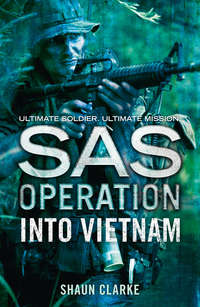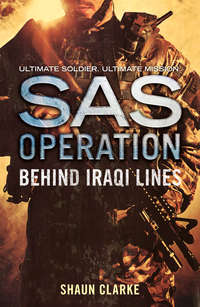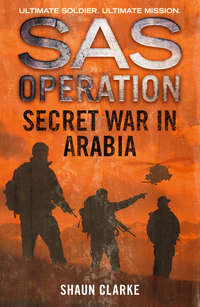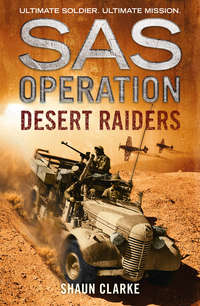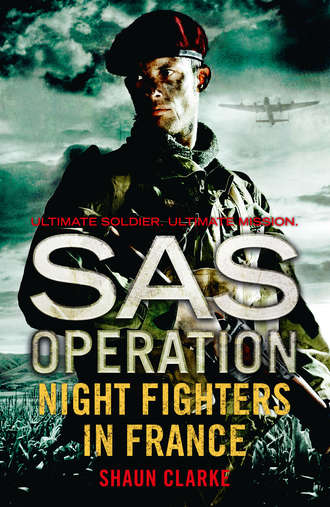
Полная версия
Night Fighters in France
‘Close your eyes and think of England,’ Rich murmured, though most of the others merely took very deep breaths and let it out slowly, each coping with the rush of adrenalin in his own way.
The light turned to red. Two minutes to go.
As CO, Captain Callaghan was back at base, waiting to come out with the third and last group, and Captain Greaves was heading Group One. Greaves therefore took up a position beside the open door, from where he could check that each man had gone out properly before he became the last man out. The first man to jump was Sergeant Lorrimer, not only because he was the senior NCO, but because he was going to act as ‘drifter’, indicating the strength and direction of the wind.
Taking his place by the open doorway in the fuselage, Lorrimer braced himself, leaned into the beating wind, took a deep breath and looked down at what appeared to be a bottomless pit of roaring darkness. Eventually the dispatcher slapped him on the shoulder and bawled: ‘Go!’
Lorrimer threw himself out.
First swept sideways in the slipstream, he then dropped vertically for a brief, deafening moment. But suddenly he was jerked back up when the shoot was ‘popped’ by the fully extended static line secured inside the aircraft. Tugged hard under the armpits, as if by the hands of an unseen giant, he then found himself dropping again, this time more gently, as the parachute billowed open above him like a huge white umbrella.
In just under a minute the seemingly infinite darkness beneath him gained shape and definition, revealing the moon-streaked canopy of the dense forest north of Orléans. No sooner had Lorrimer glimpsed this than the trees were rushing up at him with ever-increasing speed. Tugging the straps of the parachute this way and that, he steered for the broad, open field that was now clearly visible and watched the trees slip away out of view as he headed for the DZ. The flat field seemed to race up to meet him and he braced himself for contact. The instant his feet touched the ground, he let his legs bend and his body relax, collapsing to the ground and rolling over once to minimize the impact. The whipping parachute dragged him along a few feet, then collapsed, and he was able to snap the straps free and climb to his feet, breathless but exhilarated.
Glancing about him, he saw no movement either in the dark expanse of field or in the forest surrounding it. Relieved that he had not been spotted by the Germans, who were doubtless in the vicinity, he looked up at the sky and saw the blossoming white parachutes of the rest of the men, most of whom were now out of the Halifax.
Having carefully observed Lorrimer’s fall and gauged from it the wind’s strength and direction, the pilot had banked the Halifax to come in over an area that would enable the paratroopers to drop more easily into the field, rather than into the forest. Now, they were doing so: first gliding down gently, then seeming to pick up speed as they approached the ground, hitting it and rolling over as Lorrimer had done, then snapping the straps to set themselves free from the wildly flapping parachute.
Having disengaged himself, each man used the small spade on his webbing to quickly dig a small hole in the earth. Then he rolled up his chute and buried it. This done, he unslung his assault rifle and knelt in the firing position, all the while keeping his eyes on the trees. By the time the last man had fallen, the paratroopers were spread out across the field in a large, defensive circle, waiting for the Halifax to turn around and drop the crates containing the jeeps and supplies.
This did not take long. The aircraft merely turned in a wide circle above the forest, then flew back to the field. When it was directly above the DZ, the crates were pushed out of the open rear bay and floated down, each supported by four parachutes. The. men in the field had to be careful not to be standing under a crate when it fell, even though its landing was cushioned by the air bags beneath it.
Soon those not on guard, keeping their eyes on the surrounding forest, were using their special tools to split the crates open and get at the jeeps. Once out of the smaller crates, the twin Vickers K guns and the 0.5-inch Browning heavy machine-guns were remounted on the Willys jeeps and the vehicles were then driven into the forest and camouflaged. When the field had been cleared, the wood from the packing crates was buried near the edge of the trees and the upturned soil covered with loose leaves.
‘Now let’s get into hiding,’ Greaves told his men, ‘and wait for the others to be dropped tomorrow night.’
‘And the next night,’ Lorrimer said in disgust.
The men melted silently into the edge of the forest flanking the DZ, taking up hidden positions near the field’s four sides. There, they proceeded to make individual lying-up positions, or LUPs, by scraping small hollows out of the earth, covering them with wire, and laying local vegetation on top. Having eaten a supper of cold rations washed down with water, the men bedded down for the night, most of them in their LUPs, others taking turns at guard duty. Placed in the four directions of the compass on each side of the field, the lookouts scanned the forest for any sign of the enemy.
There were no land movements apparent that night, though many aircraft, both Allied and German, flew overhead to engage in bombing runs or aerial fights far away. While the surrounding forest was quiet, the sounds of distant explosions were heard all night as battle was engaged on several fronts and the Allied advance across France continued. When dawn broke, the mist of the horizon was smudged with clouds of ugly black smoke.
‘Poor bastards,’ Jacko murmured, thinking of the unfortunate men who had endured the relentless bombing all night near that murky horizon.
‘Poor Kraut bastards,’ Rich said ironically.
‘A lot of them are Allied troops,’ Jacko reminded him, ‘being bombed by the Germans. But whatever side they’re on, they’re poor bastards, all of them. I don’t like bombardments.’
‘I grant you that, mate. We had enough of them in North Africa and Sicily to last us a lifetime. I’m amazed we’ve still got our hearing as well as our balls.’
‘Some would dispute the latter assertion,’ Sergeant Lorrimer whispered as loudly as he dared, raising his head from the LUP beside them. ‘Now shut up, fill your mouths with some cold food, then go and replace those poor frozen sods out on point.’
‘Yes, Sarge!’ Jacko and Rich whispered simultaneously.
For most of the men, the rest of the day was long and boring, with nothing for them to do but either lie in their LUPs or crawl out to replace one of the guards. Aircraft, mostly Allied, flew overhead constantly, Fortresses and Liberators and accompanying Spitfire fighters, intent on keeping up the relentless bombing of German positions further inland.
Also, throughout the day, German convoys or individual jeeps and trucks could be seen passing by on the nearby road, half obscured by the hedgerows that bounded the fields, heading towards or away from the front indicated by the distant sounds of battle. Luckily, none of them turned off the road to cross the field to the forest and the SAS men remained undetected.
When darkness fell, the sounds of distant battle were accompanied by spectacular flashes that lit up the horizon and lent a magical glow to the dense clouds. Shortly before midnight, the Halifax reappeared overhead and the white parachutes of the second batch of SAS men billowed in the darkness as they drifted gently to earth. They were followed by another consignment of wooden crates, each one descending beneath four parachutes and landing on their air bags.
When the aircraft had disappeared again, the new men did exactly as the first batch had done: drove their jeeps into the forest, buried the wooden planking from the crates and covered the disturbed earth with leaves, then scraped out LUPs in areas selected for them by the Originals, who had landed the previous night.
Another night passed uneventfully, except for distant explosions from the front and eerie flashes which lit up the horizon, revealing swirling clouds of smoke. The smoky dawn heralded a second tedious day, with Allied aircraft rumbling almost constantly overhead and helmeted German troops heading to and from the front on the road beyond the field, at the other side of the hedgerows. Hidden in their LUPs, the men were not seen by the German troops, though some were already so bored that they wished they had been.
That night the third and last of the SAS groups, headed by Captain Callaghan, was brought in to the DZ by the Halifax. This time, however, one of the jeeps dropped from the aircraft broke free from two of its four parachutes and crashed to the ground, causing the crate to shatter and the waiting soldiers to run for cover. The jeep had embedded itself so deeply in the ground that it had created a large crater. Because the vehicle was badly damaged, it was left buried there, along with all the other debris, and then the hole was filled in with soil and camouflaged with loose foliage.
This time, instead of melting back into the trees, the new arrivals helped the first two batches of men to fill in their LUPs and hide all trace of their presence in the area. Then the men of C Squadron, now safely on the ground, dispersed to their individual jeeps and the column, totalling twenty vehicles, moved off along a forest track, heading for the open country behind enemy lines.
3
Aided by bright moonlight, which illuminated the narrow road through the forest, the column of jeeps had a relatively easy first morning, heading without lights for open country dotted with small farming communities. Some of the villages, as the men knew, were still occupied by the Germans and so had to be approached carefully; others had been freed but were surrounded by the advancing and retreating armies, which meant that the Germans could return unexpectedly; and an increasing number were well out of the danger zone and preparing to give a heart-felt welcome to their Allied liberators.
Progress was frustratingly slow because one jeep was out ahead on point, its crew having been given the dangerous job of acting as advance scouts, prepared to either engage the enemy or, if possible, return unseen to the main column and report the enemy’s presence to Captains Callaghan and Greaves, who would then jointly decide if they should attack or simply make a detour. The brief, as outlined by Callaghan, was to avoid engaging the enemy whenever possible and instead reconnoitre the area for a suitable base camp from where they could move out to find the Maquis.
In fact, more than once the men on point in the jeep – Sergeant Lorrimer as driver, Jacko on the twin Vickers K guns and Rich on the Browning heavy machine-gun – noticed the glow of camp-fires and oil lamps in the forest and assumed them to be from German camps. Invariably, closer inspection, usually on foot, revealed this to be true and the men therefore always had to backtrack to meet up with the column behind and inform Callaghan and Greaves of the enemy presence. The column, now split into two, with Callaghan in charge of Group One and Greaves leading Group Two, would then take the nearest side road and make a wide detour around the enemy, to travel on unmolested.
This was the situation for most of the first six hours, as they travelled through the night and early morning in the depths of the forest. By dawn, however, the trees were thinning out and they were emerging into open countryside with wide, rolling fields dotted with hamlets and crossed by a web of major and minor roads, including German military supply routes (MSRs).
‘It looks so peaceful out there,’ Callaghan said.
‘Except for that smoke on the horizon,’ Greaves replied. ‘It’s all happening there.’
Now out in the open, they had to travel much more carefully. To get from one side of an MSR to the other, they usually drove alongside it, out of sight behind hedgerows or trees, until they came to where the road was crossed by a track. There they would wait until the track was inspected by the jeep on point; when it was reported clear, the column of jeeps, using the track, would cross at top speed. Once or twice the last of their jeeps crossed just as retreating German columns appeared along the MSR and headed towards them; but that first day, at least, they managed to push on unseen.
The first village they came to was on the banks of the Loire. Arriving there just before noon, they were greeted by villagers, mostly women, children and elderly men who cheered, applauded and placed garlands of flowers around the soldiers’ necks. The soldiers then learned that they were the first Allied troops to arrive; that the Germans had only recently fled from this village; that three of the villages around it were still occupied by sizeable German columns; and that the Germans were reported to have recently fled from the next village along the SAS men’s route.
As most of the soldiers settled down in the sunny village square to flirt with the bolder local girls while enjoying a lunch of fresh bread, cheese and calvados, all supplied by the grateful villagers, Callaghan and Greaves received a visit from the mayor and the sole remaining member of the Maquis. The mayor was a portly, good-humoured individual who gave them invaluable information about the German forces who had occupied the village. The Maquisard was a young man, Pierre, who wore shabby grey trousers, a torn tweed jacket, shoes with holes in the soles and a rakishly positioned black beret. With a stolen German semi-automatic rifle slung over his shoulder, he grinned cockily as he told them, in French, that the rest of his Maquis friends had left the village in pursuit of the fleeing Germans and that he had been left behind to act as guide to the first Allied troops to arrive.
‘That means us,’ Callaghan said.
‘Oui, mon capitaine. I will be proud to serve.’
‘Ah, you speak English!’
Pierre grinned and placed his index finger just above his thumb, leaving a tiny gap between them. ‘Only a little.’ Then, reverting to his own language, he said: ‘But your French, I notice, is excellent.’
‘It’s good enough,’ Callaghan said, though he spoke the language well, ‘I’m sure we’ll get by with it. What was it like with the Germans here?’
Pierre shrugged and stopped grinning. ‘Not good, monsieur, but other villages had it worse. Here, though the Boche commandeered the best houses and took most of the food we grew, they were a disciplined bunch who neither harmed the older folk nor abused the women. They did take the few remaining young men away for forced labour in Germany, but as most of us knew they would do that when they came, we fled into the forest and made our own camps there.’
‘And were very successful at harassing the Germans,’ Greaves said diplomatically.
‘In a limited way only – at least until the invasion was launched. Before that, we had to be careful about coming out of the forest to attack the Germans, because if we did they would exact some terrible form of vengeance. Sometimes they shot three or four Frenchmen for every German shot by us, or even worse, in one case they herded every member of a village into the church and then set fire to it. So some of them have done terrible things, but here we were lucky.’
‘And your fellow Maquisards are now pursuing those same Germans?’
‘Sniping on them as they retreat. The main German supply route, along which they are retreating, runs through hilly, densely forested countryside. The Maquis are well protected by the trees and pick them off from the hills. This not only reduces the Germans in number, but also makes them constantly nervous. I wish I was there!’
‘You can be,’ Callaghan told him. ‘It’s imperative that we link up with the Maquis and learn all we can about the Germans’ movements and habits. If you act as our guide, you’ll be able to rejoin your companions.’
‘Then I’m your man, mon capitaine.’
‘Thank you, monsieur.’
Callaghan glanced across the village square and saw that the SAS troopers not on guard at the edge of the forest encircling the village were sprawled around the fountain in the middle of the square, in the shade of the leafy trees, finishing off their bread and cheese, swigging calvados, and shamelessly flirting with the younger, bolder girls. The girls’ parents were looking on, not offended, simply thrilled to see the British soldiers here, scarcely believing that they were human like other men, and might seduce their daughters. The fountain itself, Callaghan noticed, had been hit by a bomb and was now half demolished and covered with its own rubble and pulverized cement. There was no sign of water.
‘When do we move out?’ the young Maquisard asked, removing his semi-automatic weapon from his shoulder and laying it across his thighs, where he lovingly stroked it.
‘When we’ve checked that the next village has been cleared, I want you to go with a forward patrol, lead them to the village, see what’s happening, then return here. If we know that the village is cleared, we can move on to link up with the Maquis.’
‘Very good,’ Pierre said.
Nodding at Sergeant Lorrimer, who was kneeling beside the young Frenchman, Callaghan asked: ‘Do you mind doing this?’
‘My pleasure,’ Lorrimer replied. ‘That calvados perked me up no end and now I’m raring to go.’
‘Then take Pierre with you and try to get back here as soon as possible. Be careful, Sergeant.’
‘I will, boss,’ Lorrimer said. ‘OK, Pierre, come with me.’ When Pierre stared uncomprehendingly at him, Lorrimer stood up and jerked his thumb, indicating that the Frenchman should follow him. With Pierre beside him, he walked around the smashed fountain to where Jacko and Rich were sitting on the steps of a house, enjoying themselves by trying to communicate with two giggling girls who spoke almost no English.
‘No, you don’t understand,’ Jacko was saying, indicating himself and the dark-haired girl nearest to him by jabbing at her and himself with his index finger. ‘Me…love…you. Me want to get in your knickers.’
The girl, not understanding what he was saying, started giggling again, though Rich silenced her by saying: ‘That’s bloody rude, Jacko! They’re decent girls.’
‘And we’re their conquering heroes, so we might as well…’
‘Shut your filthy mouth, Jacko,’ Lorrimer growled as he approached the men, ‘and get to your feet. Before you cause offence here by saying the wrong thing in front of a Frog who knows English, I’m taking you on a little patrol.’
‘Aw, come on, Sarge!’ Jacko protested, wiping his wet lips with the back of his hand and waving his bottle of apple brandy. ‘I haven’t finished my lunch!’
‘You’ve had enough for now. And if you have any more of that stuff you’ll be even more stupid and loose-tongued than you are normally. So put that bottle down, pick up your rifle, and get on your feet. You, too, Burgess.’
‘Very good, Sarge,’ Rich said, slinging his rifle over his shoulder and winking at the moon-eyed French girl beside him. ‘Unlike some we could mention, I never complain about being asked to perform my duty. Backbone of the squadron, me, Sarge.’
‘And humble with it, I note,’ Lorrimer responded. ‘Now say goodbye to your two little girlfriends and let’s get to the jeep.’
Rich shyly mumbled his farewell to the girl sitting beside him, but Jacko, climbing to his feet, was considerably more theatrical, bowing, sweeping his beret across his chest and saying with a dreadful accent: ‘Au revoir, mademoiselle. Je t’adore.’ When the girl burst into giggles again, Jacko grinned from ear to ear, then followed Lorrimer, Rich and the young Maquisard across the square to their jeep.
‘I didn’t know you spoke French,’ Rich said.
‘I don’t,’ Jacko replied. ‘Those are the only Frog words I know. Picked them up from the films.’
‘What a fucking prat!’ Sergeant Lorrimer muttered to himself, shaking his head in exaggerated disgust. Then, indicating the young Frenchman with the German rifle, he said: ‘This is Pierre, of the Maquis. If you understand what I’m saying, Pierre, this is Corporal Burgess, known as Rich, and Lance-Corporal Dempster, known as Jacko. As neither speaks French, you won’t have to put up with their bloody awful conversation.’
‘Well, thanks a lot!’ Jacko exclaimed.
‘I understand,’ Pierre said proudly, smiling at everyone. ‘Rich and Jacko! Nicked names!’
‘Nicked names,’ Lorrimer said. ‘You’ve got it.’ He sighed in exasperation and turned to the other two. ‘Pierre’s going to act as our guide and hopefully lead us to his fellow Maquis. But first he’ll take us to the next village on our route. If it’s been cleared, which we think it has, we’ll come back and tell the others about it. Then we head out.’
‘You picked the right men for the job,’ Jacko informed him.
‘I’m sure,’ Lorrimer said, then he clambered up into the driver’s seat of the Willys jeep, indicated that Pierre should sit beside him, and waited patiently until Jacko and Rich had climbed into the back, the former behind the twin Vickers guns mounted in the middle of the vehicle, between the front and rear seats, the latter behind the Browning heavy machine-gun mounted on the rear. ‘All set?’ Lorrimer asked.
‘Of course,’ Jacko replied.
‘Fire away,’ Rich added.
‘Hold on,’ Lorrimer said. Just to take the wind out of the sails of his two cocky passengers, he released the handbrake and accelerated quickly, making the tyres screech in the soil as the jeep shot forward, practically taking wing. Jacko and Rich were nearly thrown out and had to hold on to their mounted machine-guns to stay upright; they were still frantically trying to keep their balance when their SAS mates in the square, still eating and drinking, clapped their hands and cheered, before being obscured in the cloud of dust churned up by the departing jeep.
‘Mad bastards!’ Callaghan muttered as he watched the jeep disappear around the first bend in the track, heading into the forest.
‘Lorrimer’s just having some sport,’ Greaves replied, grinning. ‘They’ll be all right.’
In the jeep, as Lorrimer slowed it down to a less suicidal speed, Jacko spread his legs and continued to steady himself by holding on to the grips of the twin Vickers. ‘Very good, Sarge!’ he bawled above the roaring of the vehicle. ‘A real smooth getaway!’
‘Designed to wake you up,’ Lorrimer replied. ‘And clearly it did.’
‘Bloody right,’ Rich confirmed, likewise holding on tight to his machine-gun.
‘Very quick! Most admirable!’ Pierre added, trying out his English. ‘We will be there in no time. Take this track, s’il vous plaît.’
Following the direction indicated by the Frenchman, Lorrimer turned off the main road and took the narrower track heading east, winding through dense, gloomy forest. The narrowness of the track and its many bends, and the overhanging branches of trees, slowed him down considerably, but he would have gone slower anyway to enable Jacko and Rich to thoroughly scan the forest for any sign of German snipers. In this task Pierre was even more of a help, knowing the forest intimately, but no movement was evident among the dense trees.
Ten minutes later they were, Pierre loudly informed them, approaching the next village.
‘Slow down when I signal,’ he managed to say in a mixture of French, English and sign language. ‘Stop, please, when I tell you.’
Lorrimer slowed down and stopped entirely when Pierre, at a bend in the narrow track around which they could not see, dropped his right hand with the palm face down. When Pierre indicated that they were going to walk the rest of the way to the village, Lorrimer executed a difficult turn on the narrow track, so that the jeep was facing back the way it had come. Having cut the engine and applied the handbrake, he picked up his 9mm Sten sub-machine-gun and jumped to the ground.
‘You, too,’ he said to Pierre, then turned to Jacko and Rich to say, as Pierre jumped down beside him: ‘You two keep manning those guns. If you hear us running back – or hear or see anything else indicating that we’re being pursued by Jerry – get ready to open fire. Understood?’


